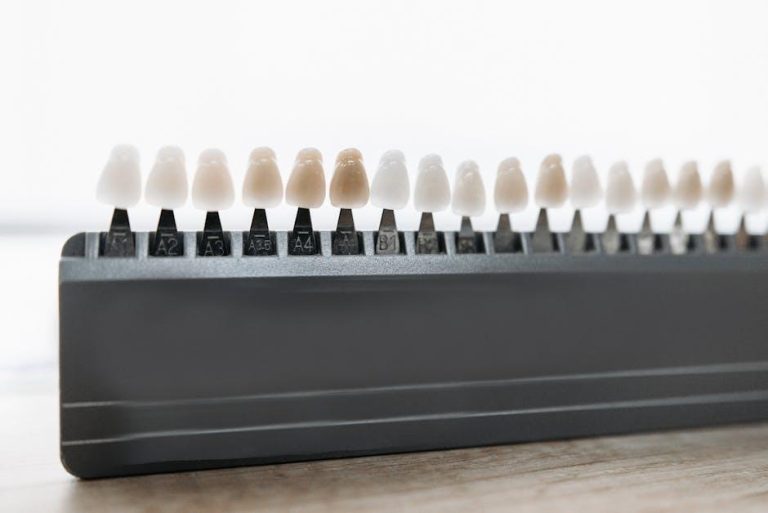
A Cry for Help from Dental Labs – Dentistry UK
Across the UK, dental laboratories have long been the unsung heroes of modern dentistry. From crafting bespoke dental prosthetics to investing in cutting-edge technology, these labs form the backbone of dental restoration and cosmetic work. However, in recent years, dental labs have reached a breaking point, facing mounting challenges that threaten their very survival. This article sheds light on the current state of dental labs in the UK, the critical issues they face, and explores practical solutions to support this vital sector within dentistry.
The Vital Role of Dental Labs in UK Dentistry
Dental laboratories provide the specialized craftsmanship behind crowns, bridges, dentures, veneers, and implants, enabling dentists to offer high-quality patient care. These labs operate with expert technicians who understand dental anatomy, materials science, and the latest dental technology. Their work directly impacts patient comfort, aesthetics, and long-term oral health.
- Custom prosthetics: Creating tailor-made solutions matching patient’s unique oral structure.
- Material expertise: Handling ceramics, metals, resins, and digital 3D printed materials.
- Digital integration: Collaborating with dentists using intraoral scanners and CAD/CAM systems.
Why Are UK Dental Labs Crying for Help?
Despite their indispensable role, dental labs in the UK face increasing pressures that jeopardize their sustainability. Key issues include:
1. Economic and Financial Struggles
- Low reimbursement rates: Insufficient NHS funding for lab work has squeezed profit margins.
- Rising operational costs: Materials, technology, and skilled labor have become more expensive.
- Market competition: International labs offer cheaper alternatives, putting local labs at risk.
2. Skills Shortage and Workforce Challenges
- Decline in young people entering the dental tech profession.
- Loss of experienced technicians due to retirement or career changes.
- Lack of structured training programs and apprenticeships.
3. Technological Disruption
- Rapid advancement in digital dentistry creates a high barrier to entry for labs resistant or unable to invest.
- Demand for faster turnaround times conflicts with artisanal craftsmanship.
- Adaptation to CAD/CAM, 3D printing, and digital workflows requires expensive hardware and software.
Impact on Patients and the Wider Dental Industry
The challenges faced by dental labs reverberate beyond the lab walls, affecting dental practices and ultimately patients:
- Delays in treatment: Fewer labs with capacity lead to longer waiting times for prosthetics delivery.
- Potential drop in quality: Cost pressures could encourage use of cheaper materials or rushed work.
- Increased dental practice costs: Dentists may pass on higher lab fees to patients.
- Accessibility issues: Particularly in rural areas, where the lab network is becoming increasingly scarce.
Case Study: A Dental Lab’s Journey Through Crisis
BrightSmile Dental Labs, a mid-sized lab based in Manchester, highlights the current realities. They faced:
- 30% reduction in NHS lab referrals over 3 years.
- Rising cost of ceramic materials by 15% annually.
- Difficulty recruiting young technicians, leading to increased workload on senior staff.
To survive, BrightSmile invested heavily in digital scanning technology and partnered with dental schools to sponsor apprenticeships. This strategy improved turnaround times and attracted fresh talent, proving that innovation and education can make a difference.
Practical Tips to Support UK Dental Labs
Dental professionals, policy makers, and patients can help strengthen the dental laboratory sector:
For Dental Practices
- Choose local labs whenever possible to support community businesses.
- Communicate clearly with labs to optimize workflows and avoid costly remakes.
- Invest jointly with labs in digital technology for smoother collaboration.
For Policy Makers
- Advocate for fair NHS reimbursement that reflects lab costs and quality standards.
- Fund educational programs and apprenticeships to address technician shortages.
- Promote grants and technology adoption schemes for small labs.
For Patients
- Ask your dentist about the dental lab they use and the importance of quality craftsmanship.
- Be prepared for timelines that balance quality with convenience.
- Support practices committed to local labs through positive reviews and referrals.
Benefits of Strengthening Dental Labs in the UK
| Benefit | Impact |
|---|---|
| Higher Quality Prosthetics | Better patient satisfaction and long-lasting restorations |
| Faster Treatment Times | Quicker surgeries and improved clinic efficiency |
| Job Creation | Opportunities for skilled workers and apprentices |
| Technological Innovation | Advanced dental solutions leveraging CAD/CAM and 3D printing |
| Economic Growth | Boosts local businesses and supports the wider dental economy |
Looking Forward: The Future of Dental Laboratories in UK Dentistry
The future of dental labs hinges on collaboration and innovation. By embracing digital technology, nurturing talent, and striving for fair funding, dental labs can not only survive but thrive. Industry-wide awareness of the value labs provide will be crucial to ensuring dental teams and patients continue to enjoy the best possible outcomes.
Ultimately, this is not just a cry for help from dental labs—it’s a call to action that dentistry as a whole must answer. Protecting and empowering dental laboratories is vital to preserving the quality, accessibility, and sustainability of dental care in the UK.
Conclusion
Dental labs in the UK are at a crossroads. Faced with financial hardships, skills shortages, and technological shifts, these essential partners in dentistry urgently need support. By understanding the challenges and working together—dental professionals, policymakers, and patients alike—we can help secure a resilient future for UK dental labs. This will ensure that high-quality dental restorations remain available and affordable across the country, safeguarding patient care standards today and in the years to come.


